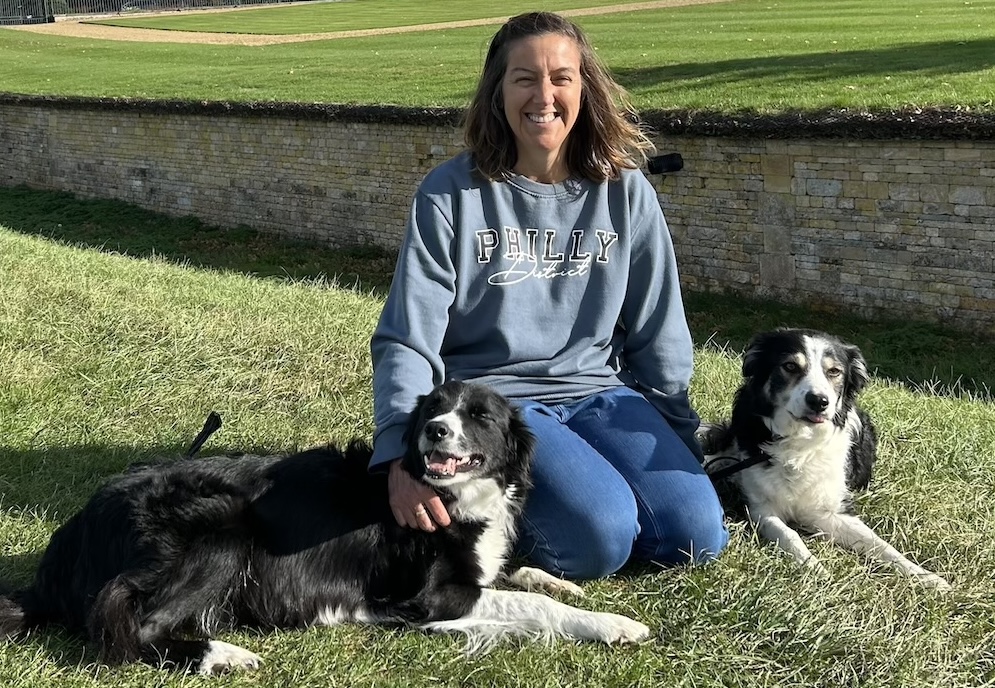
Did you know that…. the dog training industry is unregulated and anyone can call themselves a dog trainer or a behaviourist? Even with no training, or just because they have done a 3-day course from a dodgy organisation that tells them they are now “qualified”.
When I decided to run a dog training business, I believed I knew a lot about training dogs. I had been training dogs, particularly collies, all my life, and I’m ashamed to admit that I thought I knew everything.
How wrong was I???
You don’t know what you don’t know!
And this is, unfortunately, the position that a lot of dog trainers are in. They have trained dogs, they have a few methods in their tool kit that “work” and they think that they are good trainers. But there is so much important information that they will be missing out on.
I’m now aware that I had so much more to learn, and still do. There is SO MUCH I didn’t know or understand that is VITAL to being able to work with dogs with problem behaviours and obtain long lasting positive results. And I’m still learning, attending webinars, courses and reading, constantly, every day.
So, how do you find out who has the qualifications AND the experience to be able to help you and your dog with their problem behaviours?
Start with the ABTC – the Animal Behaviour and Training Council. The ABTC is an organisation that sets and maintains standards of knowledge and practical skills needed to be an animal trainer or behaviourist and maintains the national Register of appropriately assessed practitioners”.
In order to be on this register, we are required to have taken ABTC-approved courses, and demonstrate that we have the required understanding of both theory and experience in order to work as a behaviourist or trainer. The assessments are rigorous, and important because we need to be able to demonstrate these skills in order to work successfully with dogs and their caregivers. You can find a full list of their registered trainers and behaviourists in their practitioner directory.
Just because a dog trainer isn’t on the ABTC list doesn’t mean they aren’t good trainers, they may just have decided not to apply for assessment. However, you won’t know for definite.
Most behaviourists who are properly qualified, however, WILL be working towards ABTC registration, so if they are not on the list, or do not have qualifications from, or be working with, any of the practitioner organisations (see below), they may not be the best person to help you and your dog.
How do I know what dog trainer qualifications mean?
Some trainers list courses and qualifications on their websites but the quality of these organisations varies. So how do you know what these qualifications mean? Luckily, the ABTC also lists practitioner organisations that give their students the knowledge and experience they need to become be able to apply to be a practitioner on the APBC register. You can find these organisations on their list of practitioner organisations.
An organisation that is not on this list may be very adequate, but you won’t know for definite.
Sticking to the APBC will give you confidence and clarity when looking for a trainer or a behaviourist.
Trainer or behaviourist?
Very simply, a trainer will help to train dogs to perform, or not perform, certain behaviours such as loose lead walking, recall, stay etc, and well as how to behave nicely around people and other dogs and become a good citizen and family member.
A behaviourist can help when the dog has severe problem behaviours such as:
- Aggression
- Separation anxiety
- Abnormal repetitive behaviours
- Fears and phobias
- Destructive behaviour in the home
- Hyperactivity – inability to settle
Think in terms of children in a classroom.
Teachers are the same as trainers – they can teach the children the information they need to learn, and can use good practises to ensure that they learn quickly and successfully.
But when a child in their class plays up, and shows signs of problem behaviour, then the teacher may call in a psychologist or a special educational needs specialist to help that child. This is similar to how dog behaviourists help with dogs with problem behaviours. The only difference is that most behaviourists are also trainers, so essentially teachers and psychologists. You can read more about the different types of ABTC-registered practitioners here.

